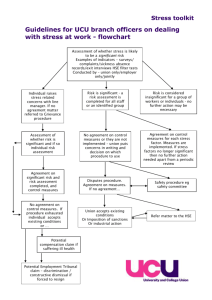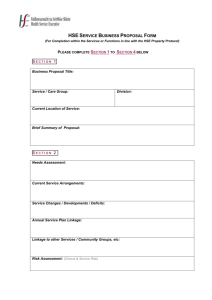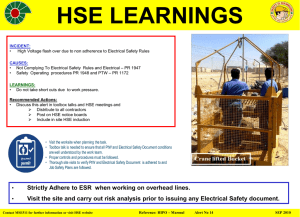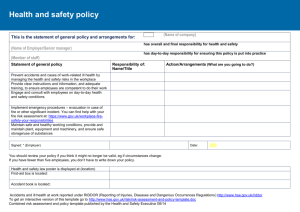Company Project Syllabus
advertisement
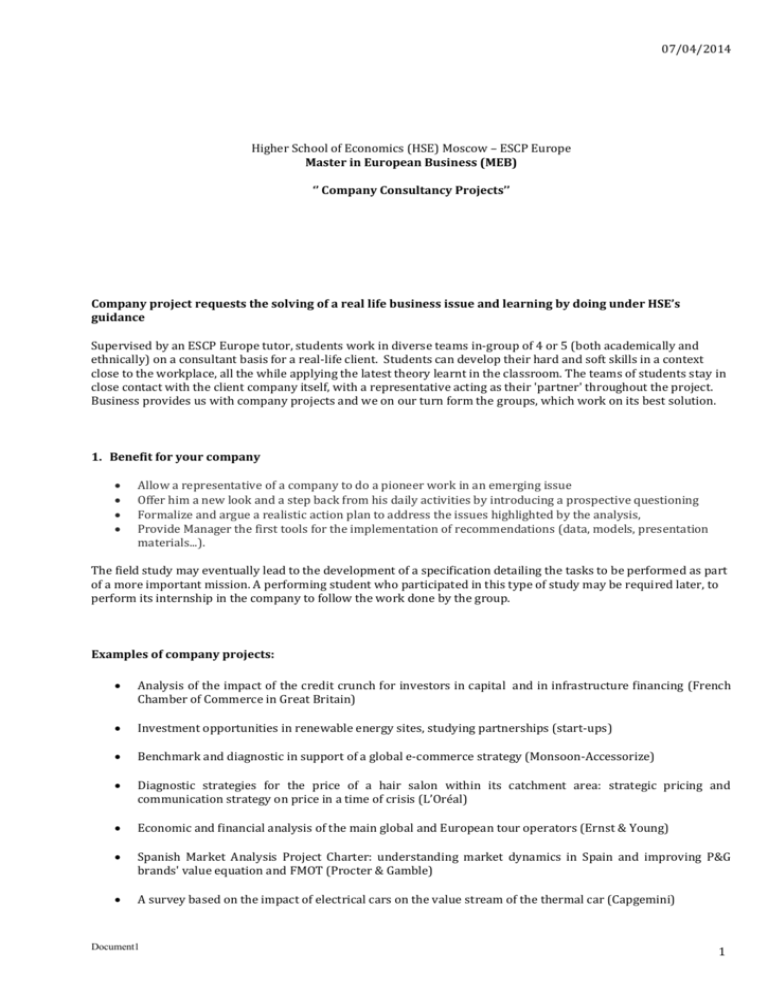
07/04/2014 Higher School of Economics (HSE) Moscow – ESCP Europe Master in European Business (MEB) ‘’ Company Consultancy Projects’’ Company project requests the solving of a real life business issue and learning by doing under HSE’s guidance Supervised by an ESCP Europe tutor, students work in diverse teams in-group of 4 or 5 (both academically and ethnically) on a consultant basis for a real-life client. Students can develop their hard and soft skills in a context close to the workplace, all the while applying the latest theory learnt in the classroom. The teams of students stay in close contact with the client company itself, with a representative acting as their 'partner' throughout the project. Business provides us with company projects and we on our turn form the groups, which work on its best solution. 1. Benefit for your company Allow a representative of a company to do a pioneer work in an emerging issue Offer him a new look and a step back from his daily activities by introducing a prospective questioning Formalize and argue a realistic action plan to address the issues highlighted by the analysis, Provide Manager the first tools for the implementation of recommendations (data, models, presentation materials...). The field study may eventually lead to the development of a specification detailing the tasks to be performed as part of a more important mission. A performing student who participated in this type of study may be required later, to perform its internship in the company to follow the work done by the group. Examples of company projects: Analysis of the impact of the credit crunch for investors in capital and in infrastructure financing (French Chamber of Commerce in Great Britain) Investment opportunities in renewable energy sites, studying partnerships (start-ups) Benchmark and diagnostic in support of a global e-commerce strategy (Monsoon-Accessorize) Diagnostic strategies for the price of a hair salon within its catchment area: strategic pricing and communication strategy on price in a time of crisis (L’Oréal) Economic and financial analysis of the main global and European tour operators (Ernst & Young) Spanish Market Analysis Project Charter: understanding market dynamics in Spain and improving P&G brands' value equation and FMOT (Procter & Gamble) A survey based on the impact of electrical cars on the value stream of the thermal car (Capgemini) Document1 1 07/04/2014 2. Work plan a. Organisation Partnership between the company, the students and the HSE. Company representative Statement of confidentiality Contract agreement Student group (4 or 5) HSE lecturers: educational referent HSE tutor: methodological referent b. Members and responsibilities i. The company will nominate a representative who identifies a problematic of management/development in his department. A meeting between the representative and the school is needed in order to precisely understand the context of the mission and the need itself. It results in a production of the ‘’engagement proposal’’. The company representative is responsible to guide the students in their work and provide all necessary information to facilitate their work (searching and access to data’s.). He will be available for the kick off meeting, intermediate meetings and the final evaluation (end of December 2014) ii. HSE tutor provides students methodological guidance and maintain an overview of the students’ progress iii. HSE lecturers provide appropriate lectures and guidance to the students. iv. Students (group of 4 or 5) should assign tasks to each member of the group. (Leader, recorder, checker.). A necessary diversity (academic profile, working experiences, nationality…) will be maintained c. Planning Planning: This phase’s objective is the production of a document called ‘’engagement proposal’’, listing the following key elements: Internal and external context: what forces are pressing the client Description of the need: what decision should be made Methodology chosen: what approach/tools are you going to answer the question Planning: what and when are the key milestones, actions and go-no-go decisions during the mission? Deliverables: what exactly does the client request (benchmark, product analysis…) Coordination/communication, organisation and budget: project members, CV, project leader’s, name/contact (on client and student side), communication tools, special requests for budget. It is important to organize meetings with the students well in advance. The initial phase (planning) is key for students in order to precisely understand the context of the mission and the need itself. A first meeting (kick off meeting) with the company representative is organised. Data collection: client meetings, interviews, and field trips… Document1 2 07/04/2014 Diagnostic: by that time, students should have finished data collection and started the analysis. The students will present a draft of their conclusions to a jury composed of tutors to gather as much feedback and guidance as possible before finalizing their recommendations. Recommendation: this phase is to validate and develop the students recommendations with the company, professors, tutors, but also to structure and finalize the deliverables, especially the oral presentation and its Power point (or equivalent) support. 3. Practical modalities a. Duration The duration of the project is three months, (September 2014-January 2015). The first meeting is the kick off meeting. The frequency of visits should be determined between the students and the company representative. In addition to this, the company representative will be present for the evaluation jury. On average, student will devote 8-10 days working on the project to perform external research, analysis and required synthesis. The meeting schedule (kick off meeting, intermediate meetings, final evaluation) should be defined well in advance and before the initial phase of the project. The students will have an opportunity to present a draft of their conclusions (December) to a jury composed of all the tutors. Final presentation is planned for the end of January 2015. b. Reporting requirements HSE professors and tutors together with the company representative must approve the engagement proposal before the start of the project. Students are required to provide progress reports on a regular basis (frequency to be defined). Following each visit of the company, students shall also write the minutes of the meeting and send a copy to the company and the HSE. The final report is sent to the company and the HSE one week before the evaluation committee. Validation matrix Document1 3
